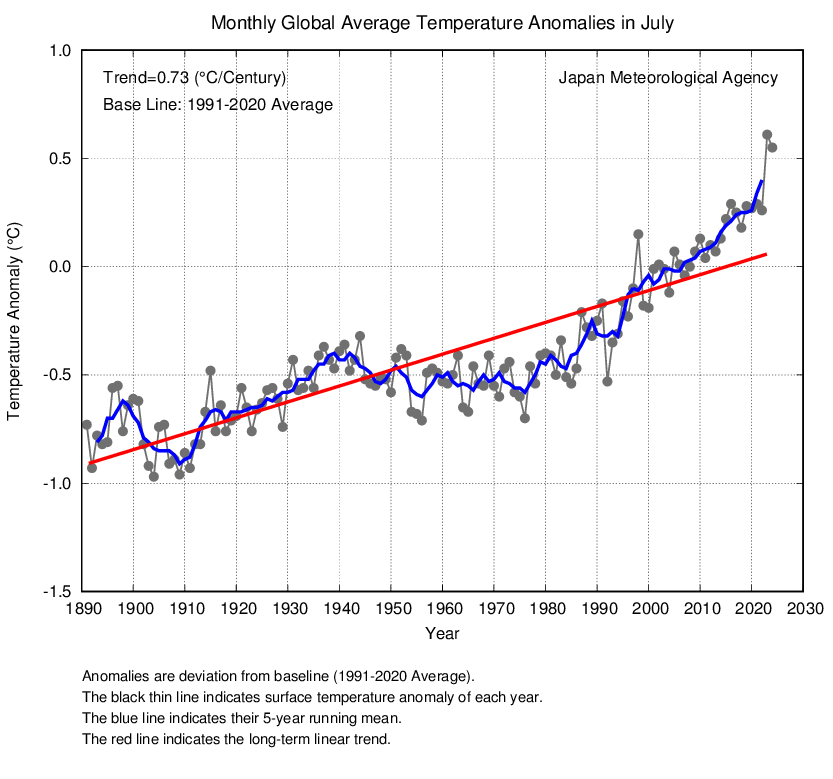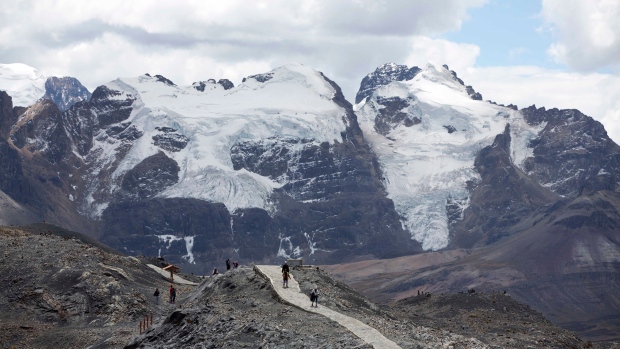ScienceRocks
Democrat all the way!
- Banned
- #1
At +0.44C above the 81-10 average, July 2016 is the warmest on record according to the JMA, beating the previous record set last year by +0.06C.

Top 5
1st. 2016 (+0.44°C)
2nd. 2015 (+0.38°C)
3rd. 1998 (+0.30°C)
4th. 2014 (+0.28°C)
5th. 2010, 2005 (+0.24°C)
Yep, the Japanese are now dishonorable, lol

Top 5
1st. 2016 (+0.44°C)
2nd. 2015 (+0.38°C)
3rd. 1998 (+0.30°C)
4th. 2014 (+0.28°C)
5th. 2010, 2005 (+0.24°C)
Yep, the Japanese are now dishonorable, lol

![QUOTE]](/proxy.php?image=http%3A%2F%2Fdata.giss.nasa.gov%2Ftmp%2Fgistemp%2FNMAPS%2Ftmp_GHCN_GISS_ERSSTv4_1200km_Anom7_2016_2016_1951_1980_100__180_90_0__2_%2Famaps.png%5B%2Fimg%5B%2FQUOTE%5D&hash=9af94c79a3f6f497d3ef7fea34441655)

